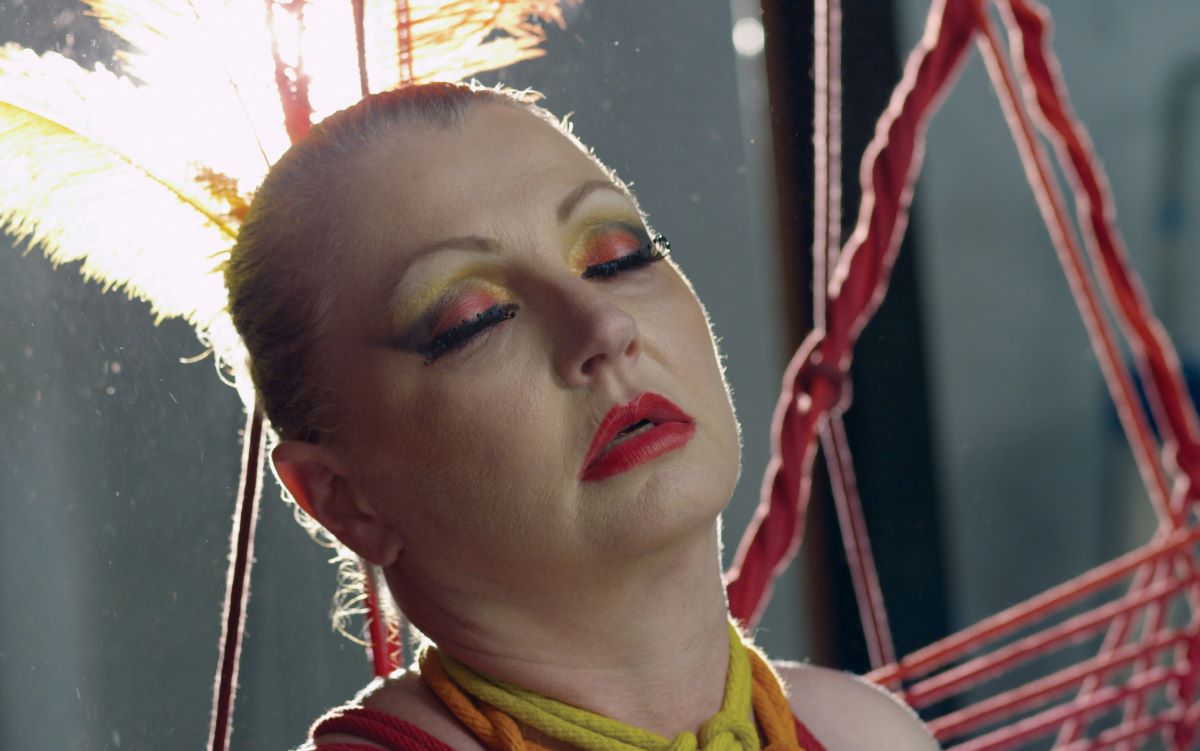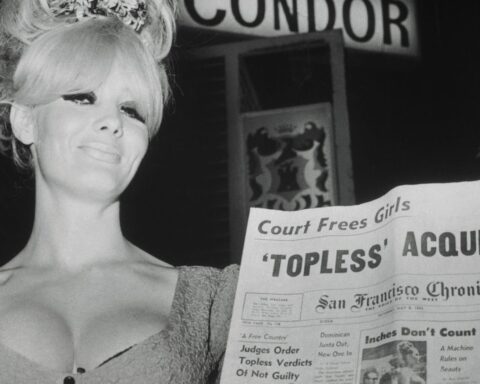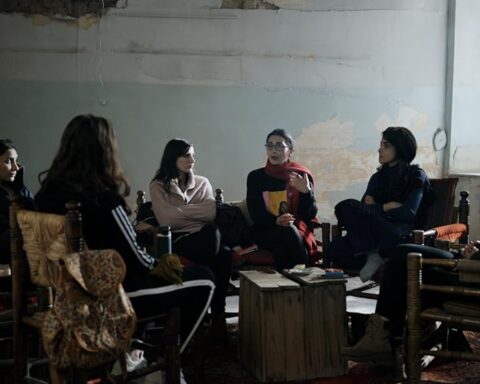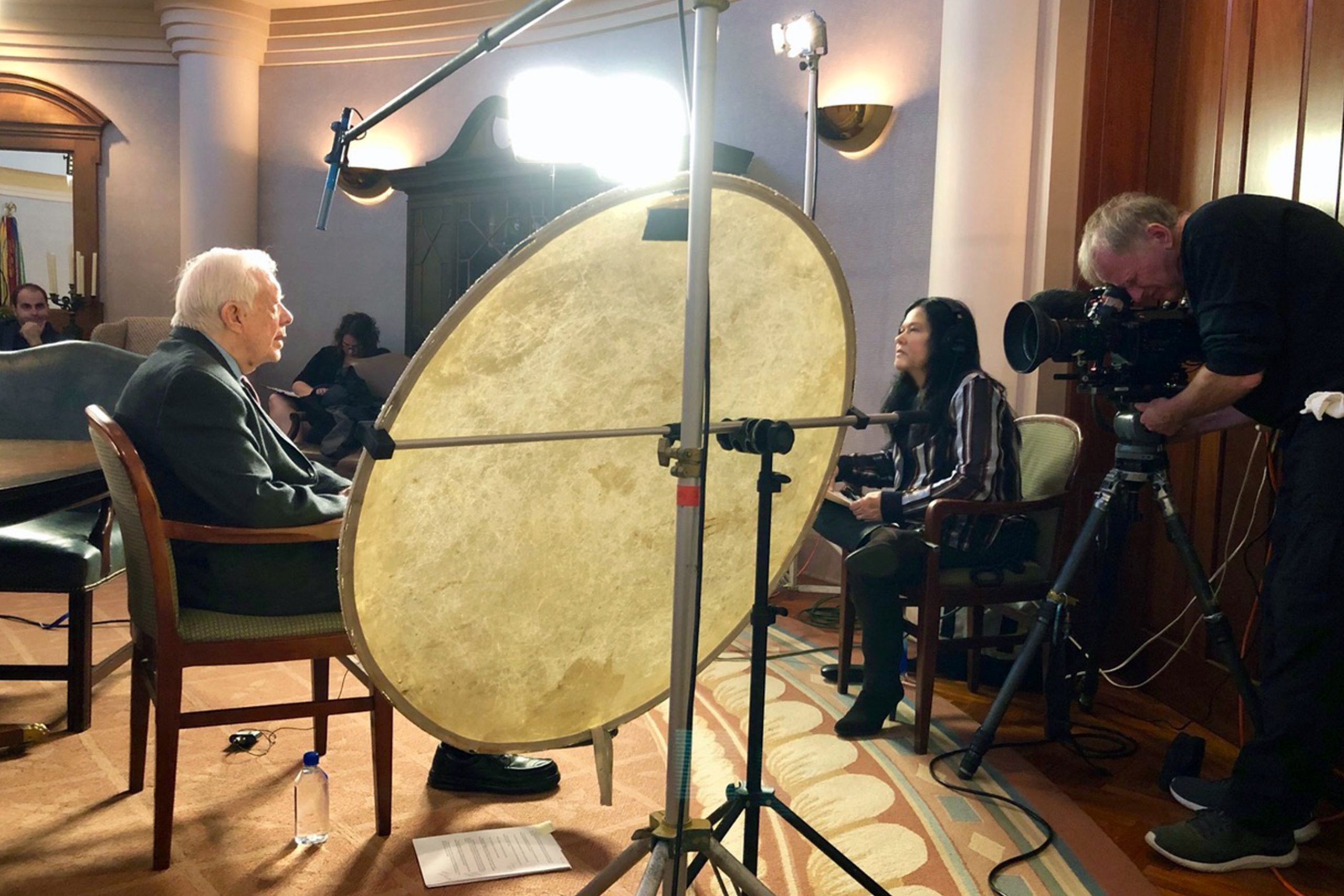Morgana
(Australia, 71 Min.)
Dir. Isabel Peppard & Josie Hess
The internet was set ablaze last month when Martha Stewart posted a photo of herself looking cute by the poolside. While many praised her “thirst trap” photo, the viral reaction it received said more about society than Stewart herself. It inadvertently exposed how little society views women of a certain age as sexual beings. However, there are those who are fighting to change this perception. In the surprisingly inspiring documentary Morgana, directors Isabel Peppard and Josie Hess remind viewers that it is never too late to embrace one’s own sexuality.
In charting the evolution of Morgana Muses, a former conservative housewife turned feminist pornographic auteur, Peppard and Hess expose the various boxes women are placed in at almost every stage of their lives. Growing up in rural Australia, it was engrained in Muses from an early age that success for women meant being a wife and mother. Sex was not something that good girls discussed. Unfortunately, attaining the coveted image of the perfect husband and home did not bring her joy.
Muses quickly realized that her marriage was a façade. Neglected by her husband emotionally and physically, her constant longing for connection led to depression and drastic weight gain. The perfect home on the outside became a solitary prison on the inside. Enduring years of celibacy, Muses even found herself ostracized by her supposed friends after she finally found the courage to leave her husband. It was clear that the portrait of happiness was more important to them than the pain that governed each brush stroke.
Unable to live up to the unrealistic image placed on her by others, and in desperate need of human touch, Muses had planned to end her life. That all changed after a one-night encounter with a male escort, which was meant to be one last opportunity to feel human touch before dying, reignited her senses. As if experiencing a rebirth, Muses eyes were opened to the fact that she was indeed a sexual being.
This sexual awakening took her down the unexpected road of adult cinema, when at age 47, she entered and won a filmmaking competition held by feminist filmmaker Petra Joy. Realizing that there was a lack of erotic visuals for women over forty, Muses began directing and starring in feminist pornographic films that shattered traditional notions of what female sexuality looks like.
Bringing an artistic and defiant flare to each work, it is easy to see why Muses has quickly risen to iconic status in the industry. However, it is Muses herself, and not simply her accomplishments, that makes Morgana such an intriguing work. Through her colourful personality, the film touches on several themes that range from the therapeutic roles sex workers play to mental health awareness to body positivity and much more. Peppard and Hess’s film conveys that despite displaying an empowering confidence in front of the camera, Muses still struggles with her self-esteem behind the scenes.
These two conflicting sides of Muses’ personality manifest in fascinating ways throughout the documentary. The film captures both the artist’s issues with her own body image and the fact that her accomplishments in the industry have not translated into financial security. In one revealing moment, she wrestles with feeling like a fraud for not reaching the standards for success that was established in her previous life. It shows that the seeds of insecurity planted in youth are difficult to uproot decades later.
By focusing on Muses the woman, more than Muses as an icon, Peppard and Hess construct a film that carries universal appeal. One does not need to be well-versed in feminist pornography to understand the lingering and restrictive impact of patriarchal societies on women. As comedian Judith Lucy notes at one point, it is ridiculous that when a woman is over a certain age she is expected to hang her ”vagina up on the wall.”
Morgana, much like Muses herself, aims to break through the boundaries of convention and show that female sexuality comes in all forms. Muses’ own work ranges from tender to controversial. In one of her films, the filmmaker’s love of knives is incorporated in ways that some may find erotic and others, unnerving. She ensures that even when pushing the boundaries, her artistic eye remains at the forefront.
Peppard and Hess feed off the artistic energy of their subject by incorporating Muses’ work along with their own distinct visuals into the piece. While using dioramas to convey the claustrophobic nature of Muses’ former married life is effective, the repetition of such devices is rather distracting at times. The more the film doubles back to shots of Muses covered in soot, the less powerful the metaphor of the burning family house becomes.
Fortunately, Muses is such a charming and compelling individual that one can overlook the way this well-shot film tends to overstate its symbolism. While the documentary features insight from the likes of Petra Joy, filmmaker Anna Brownfield, sex educator and author Eva Sless, adult film performer Jiz Lee, and Hess herself, who is also a co-partner in Muses’ “Permission 4 Pleasure” company, Morgana lets Muses be the driver of her own story.
Turning her adversities into art, Muses shows that even unconventional paths can lead to powerful destinations. Morgana is an empowering and touching film that confidently asserts that female sexuality does not come with an expiry date.
Morgana plays the virtual edition of the Fantasia Film Festival from August 20 to September 2.














